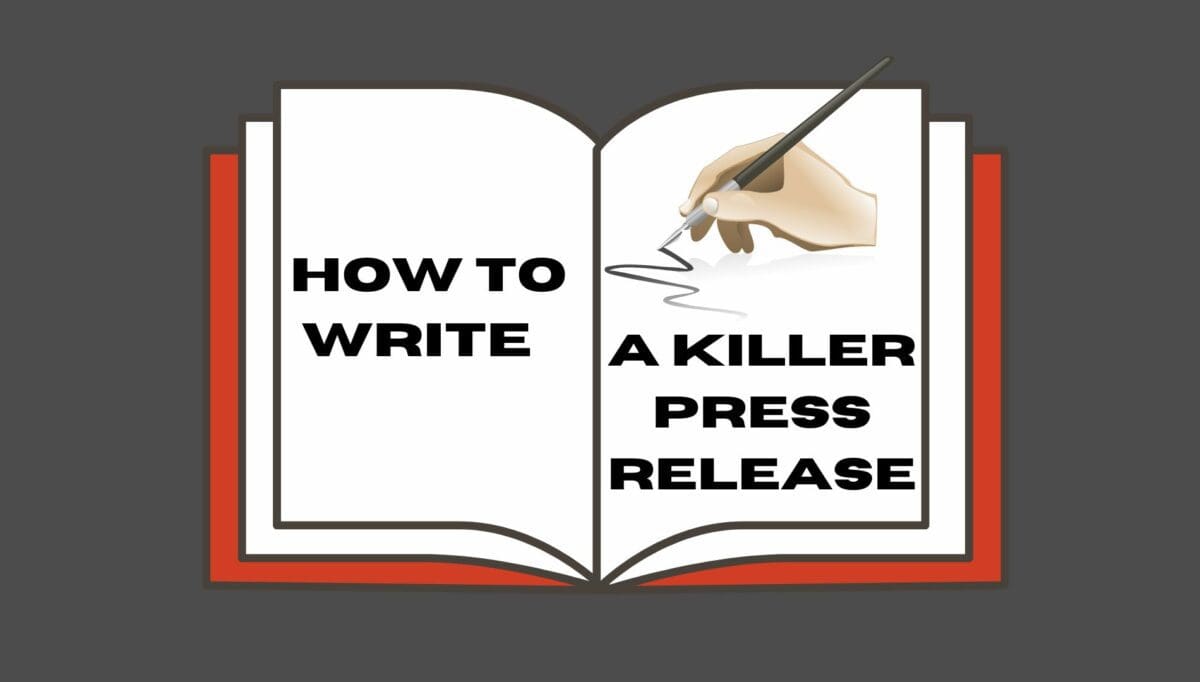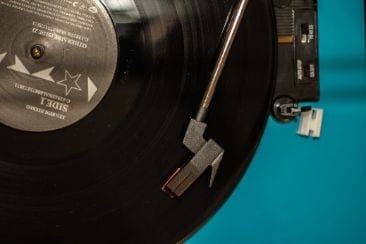You’ve spent weeks, months, maybe even years practising your song or set. You’re note-perfect, know your lyrics inside and out, are on top of your marketing and social media campaign and have a killer outfit to boot. But wait, did you think about what you’re going to say when you got out on stage?
When you master how to introduce yourself as a singer, you come across as more polished and professional. The audience will relate and engage better with you and you can even inject some humour. It’s also an opportunity to plug your music and your brand.
Read on to find out the top techniques you can use to sell yourself, enhance your act and make a great first impression.
How to introduce yourself as a singer
The first an audience sees of you is when you’re introducing yourself on stage as a singer. You can convey personality and confidence when speaking and performing in the instrumental sections and breakdowns. These are opportunities to shine. Being a singer requires so much more than just the ability to sing.
It demands strong presentation skills, personality and the ability to get the audience on your side. It may seem like this career or vocation asks a lot. But fortunately many have gone before you and there are plenty of industry tips and secrets we can share to help when you’re introducing yourself on the stage as a singer and filling an instrumental section.
Making an introduction speech before singing a song
At the top of your number, you may want – or need – to give a little speech. You’ll first need to consider the purpose of this speech. It has to be well thought out, sound natural and spontaneous, but be meticulously practised. Much like the song itself.
On a basic level, the speech should tell listeners who you are, and what the song is. Extra detail, like whether you wrote the song yourself and what it’s about, can also be useful and interesting. Imagine your speech as a PR or marketing opportunity to be seized. If a host has already said a little bit about you, such as your name and song title, you can use this time to talk about the song’s meaning or more about you as an artist.
Make sure you’re speaking naturally but clearly. Mumbling and poor enunciation will make your intro woolly. Find out how to improve your diction for singing and speaking, in this article.
What to say before singing a song
What sort of song are you singing? Different types of songs and vocals require different approaches. You might be dramatic and solemn, or lively and bursting with energy. Watch your favourite singers. How do they introduce songs? What about those intros do you find appealing, or do you dislike?
The speech is all about introducing yourself and /or your song to the audience. You need to do this using succinct language, meaning a few words. This is not the time for waffle. It’s about telling the crowd who you are, and what the song is. And charming them in the process, so they’ll love you before you’ve even sung a note. You may also want to thank the audience for being there or talk about their city or the location. Making a funny comment or a joke (if it’s a good one) can be a winner too.
Singer introduction sample speeches
You can find examples of artists’ introduction speeches online. Or you can watch other presenters and singers doing their thing and develop your style from there.
Here are some samples from successful singers. You can use their intros to get ideas for your own.
Billie Eilish
Freya Ridings
Olly Murs
Lady Gaga
Chance the Rapper
Angelina Jordan
How to introduce yourself in a singing audition?
The opportunity for an intro may be very brief if the auditions are busy – just letting everyone know your act’s name and song title. Or you might need to give a mini-bio and talk about any significant meaning the song might have. Check the audition guidelines and the organisers’ webpage for details on exactly what they want.
Also, be sure to find out how long you have for your slot. This will have to include your song and any intro out with the music. Some venues use a flash of a coloured light facing the stage (so you see, but the audience doesn’t) to let you know when your time is up.
Introduction for a singing competition
There are many options that enable you to get creative. But you must do something. If you fidget, look uncomfortable or aimlessly stare at your feet it will make the panel uneasy and lose interest in your act. When you’re on stage or at an audition, you’re performing the whole time, from the moment you set foot in front of the judges and crowd, to the moment you’re out of sight.
When the music’s playing and you’re not actually singing, still do something. Perhaps dance or move to the beat. This works best for pop and dance numbers and can even be choreographed. Or you could look at the audience wistfully, then look down, then look up again. For examples of this watch Adele in action.
How do you introduce a song
If you have time, you may want to include a small bio either about yourself or about the band – who’s who and how you got together.
Another key to success is your timing. If you’re being applauded or cheered, you must start speaking at exactly the right time. This is where the volume from the audience begins to dip or wane. Don’t try and talk over rapturous applause. But listen very carefully and the second it drops in the slightest, that’s when to begin. If you leave too long a gap, it’s awkward, you lose the momentum and the atmosphere. This can take practice.
Try it at home with videos of other people singing.
How to introduce a song on stage
Let’s look at some basic components needed when making a song introduction on stage.
- Clarity. What you’re saying must be clear, simple and easy to understand.
- Articulation. Pronounce your consonants for clarity, but without losing the charm of your own accent.
- Volume. There must be enough volume that everyone in the room can hear you. But don’t shout. It’s all about projection.
- Confidence. It must be delivered with assurance and self-confidence.
- Enthusiasm. Your audience won’t be enthusiastic if you’re not. Match your tone with the song’s vibe and you’ll be on track straight away.
- Warmth. You should appear likeable, both in what you say and how you say it. Unless you’re channelling the Gallagher brothers.
- Personality. Your individuality should shine through. This may occur naturally, but it’s worth being conscious about it too.
How to introduce a video
You might use a video as an intro, much like the Eurovision song contest. In this case, it will speak for itself and you can just start singing once it’s finished. Or your performance itself may be shown on video. This is especially likely if a concert or festival is happening remotely. In this case, you may want to explain where it was filmed, or a little about the visuals, as well as the song itself.
Here’s Ed Sheeran introducing himself on video and doing intro segues to sections of his music and songs shown on video.
Especially if the audition is being filmed, you may have been briefed as to what you should say. Stand out from the crowd at an audition by subtly using an emphasis on particular consonants or using a soft tone. Above all though, you should be confident and clear, stating your name and song.
How to introduce yourself as a musician
You may not have the luxury of time before the music starts, to let the audience know who you are. In this case, or if you have a very long lead in to fill, you may want to use the bars of the song intro to say your piece. This must be very carefully timed and practice – you don’t want to run out of notes and cut your speech off early.
After your spoken intro you may want to gesture to the audience to clap or sway – depending on the tempo of the song. This can help you fill the time of the instrumental section. But it also helps you to connect, engage and interact with the audience.
The music instrumental can also be an excellent opportunity to speak to the audience. These are seconds that can be used to perform. Study other performers live performance on YouTube or your favourite artist at a concert to see how this works.
How to introduce a rapper
Introducing a rapper (whether someone else or yourself) is essentially the same as introducing yourself as a singer. You might like to talk a bit more about your message, as rap lyrics are often more significant than those from a pop tune. Rappers often use a pseudonym or nickname rather than their ‘real’ names (like Stormzy, Snoop Dog and P Diddy). So be sure to use their stage name, unless they ask otherwise.
Now it’s clear what an opportunity these extra parts of the performance offer, it’s time to get working on your act. How will you go about introducing yourself as a singer? How can you maximise your potential for performing in the instrumental sections and breakdowns? If you’re unsure, think about working with a voice or performance coach, or getting some artist development sessions with a studio.
Related Questions
- How do you answer tell me about yourself in an audition?
A unique piece of information will stick in people’s minds. It can be funny, serious, or somewhere in between, but consider what’s different about you and use it to your advantage. You can also talk about how you got started as a musician.
- How do you introduce the next performer?
Ask them what they’d like you to say and to check the correct pronunciation of their name and song. It’s very much the same as introducing yourself. The most notable difference is that you’ll need to get the audience to applaud and cheer for their entrance and it won’t be over their musical intro.
- What should you not do before singing?
Make sure you’re ready for your slot – don’t disappear to the loo. Don’t gulp cold water, lukewarm is better and take care of eating. Try to have a light meal or snack a while before going on stage. Don’t tap the mic or start testing your equipment. This should be done during a pre-show soundcheck.
How do you introduce yourself as a singer? Have you had to make a speech on stage? Let us know how it went and what you said in the comments below.










